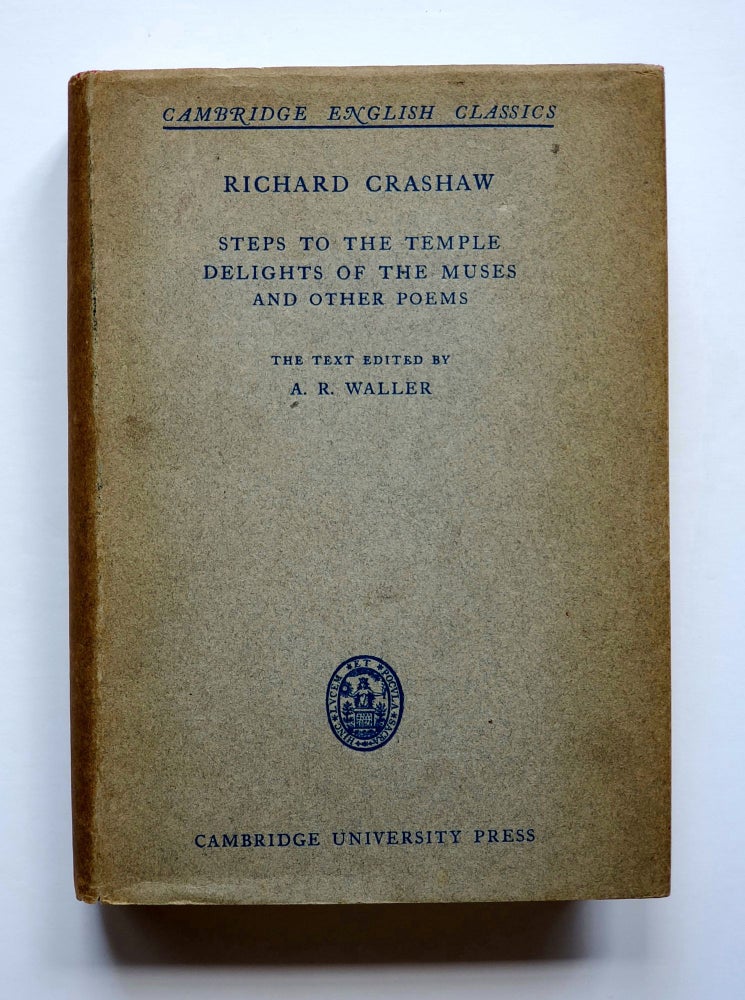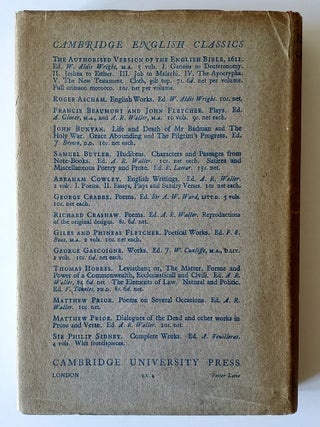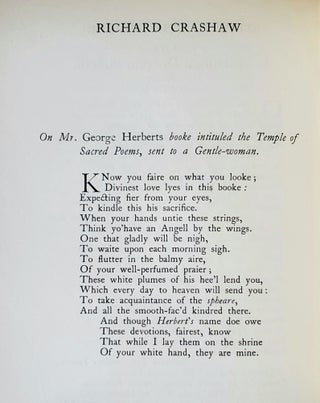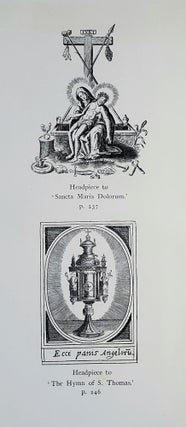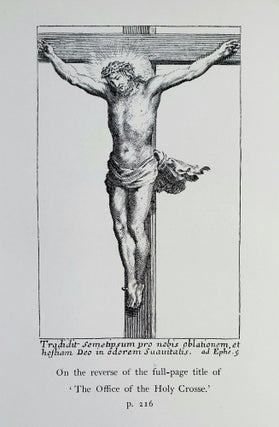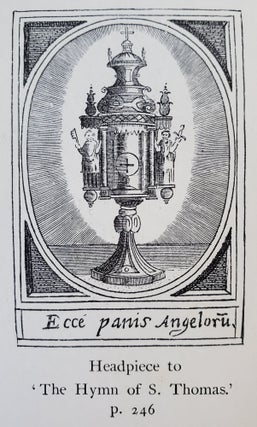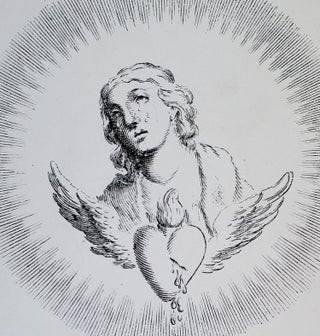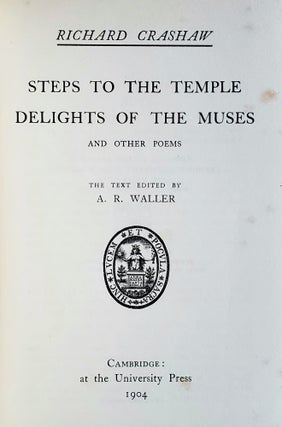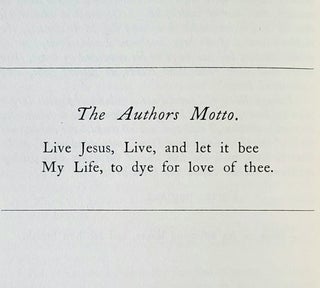Poems by Richard Crashaw
Cambridge: At the University Press, 1904. Original red cloth (7 7/8 inches tall), gilt spine, original printed dust wrapper. Faint scattered foxing, gentle toning and neat tape repair to verso of wrapper. A near-fine copy. Item #1227
"BY THY LARGE DRAUGHTS OF INTELLECTUAL DAY / AND BY THY THIRSTS OF LOVE MORE LARGE THAN THEY / BY ALL THY BRIM-FILLED BOWLS OF FIERCE DESIRE / AND BY THY LAST MORNING'S DRAUGHTS OF LIQUID FIRE"
Cambridge English Classics edition of Crashaw, containing "the whole of Crashaw's Poems, English and Latin, now for the first time collected in one volume." Illustrated with captioned plates after Crashaw's own designs. In an excellent example of the scarce original printed dust wrapper.
Ordained in the Church of England, Crashaw was a fellow at Peterhouse at Cambridge University before he was "ejected with others for refusing to accept the Solemn League and Covenant" during the English Civil War. Banished by his parish, Crashaw sought refuge in France and Italy where he converted to Catholicism before his sudden death in August 1649. Crashaw's "place in English literature may be said to be fixed now for all time. If he is not the most important, he is at any rate not the least distinguished of that remarkable group of Caroline lyrists described so unsympathetically, it might even be said so ineptly, by Dr. Johnson, as belonging to the Metaphysical School. Like Herbert and Donne and Cowley, he is in love with the smaller graces of life and the profounder truths of religion, while he seems forever preoccupied with the secret architecture of things" (Cornelius Clifford, The Catholic Encyclopedia, 1908).
Edited by A.R. Waller, the co-editor of the Cambridge History of English and American Literature (published 1907-1921). His short introductory Note (dated, "A.R. Waller / Cambridge / May 15, 1904") and concluding endnotes supplement the text in five sections. I. Epigrammatum Sacrorum Liber, II. Steps to the Temple and The Delight of the Muses, III. Carmen Deo Nostro, IV. Archbishop Sancroft's MS., V. British Museum MS. A posthumous work, Carmen Deo Nostro, is perhaps best known for his Apologia for St. Theresa: "By all of Him we have in Thee / Leave nothing of myself in me." With an Index of Titles and an Index of First Lines.
Price: $150.00

